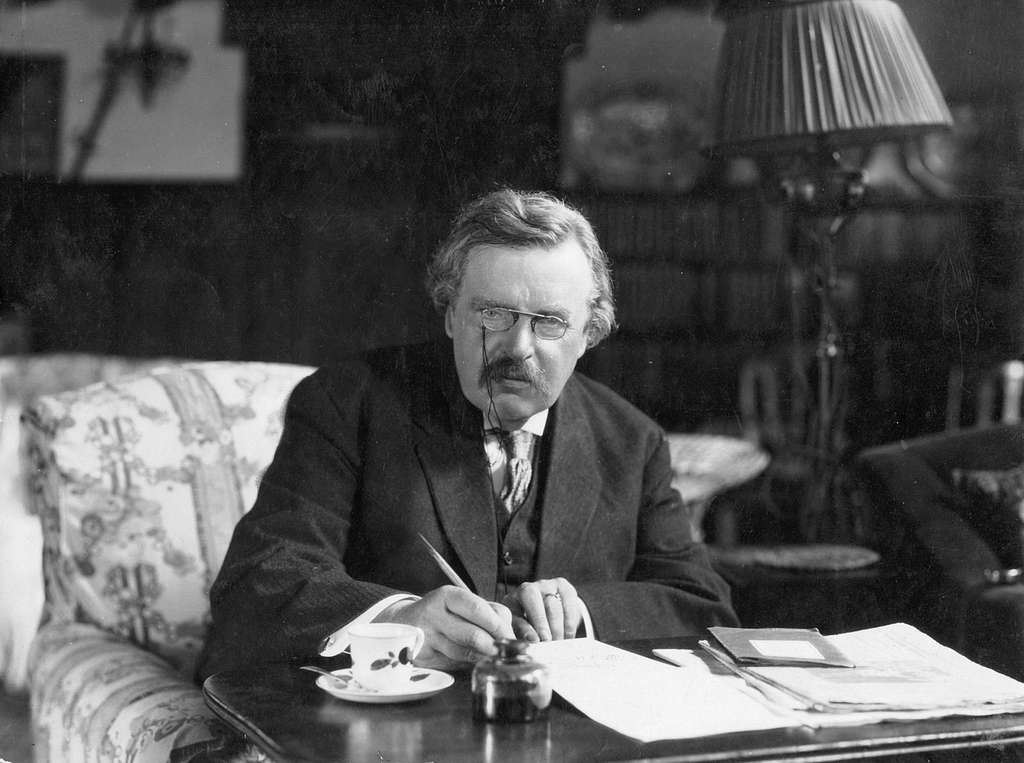
G.K. Chesterton’s Orthodoxy (1908) is a timeless exploration of faith, reason, and the human spirit, written with the author’s signature wit and paradoxical flair. Often called a “spiritual autobiography,” it traces Chesterton’s journey from skepticism to a robust defense of Christian belief, presenting orthodoxy not as a dull dogma but as a thrilling adventure.
Orthodoxy (1908) is Chesterton’s defense of Christian faith, written as a personal journey from skepticism to belief. It argues that Christianity’s paradoxes—like humility leading to greatness—make it the truest explanation of reality.
After publishing Heretics, where he critiqued modern thinkers, he was challenged to state his own beliefs. Orthodoxy is his response—a positive case for Christianity as he discovered it anew. It’s less a rebuttal and more a joyful rediscovery of faith’s vitality.
The book celebrates paradox as the key to truth. Chesterton argues that Christianity’s seemingly contradictory doctrines reflect life’s complexity, like God being both infinite and personal.
He uses “orthodoxy” to mean traditional Christian belief, but with a twist: it’s a thrilling, adventurous creed. Unlike the dullness of modern skepticism, it balances reason and wonder. He paints it as a dynamic force, not a stale set of rules. This redefinition challenges readers to see faith as vibrant and alive.
Chesterton calls orthodoxy a “romance” because it’s a daring, poetic adventure. He writes, “There never was anything so perilous or so exciting,” flipping the idea of faith as boring. It’s a call to see belief as a heroic quest, not a mundane obligation.
Chesterton attacks modern philosophies like materialism for lacking imagination and depth. He contrasts their narrowness with Christianity’s broad, life-affirming vision.
Wonder is central to Chesterton’s argument. He believes Christianity keeps alive our childlike awe at existence, unlike secularism’s cynicism. He famously writes, “We are perishing for want of wonder, not for want of wonders.” This awe, he argues, is what fuels gratitude and sanity. Without it, life becomes a gray, mechanical slog.
He employs paradox to reveal truth, like “The poet only asks to get his head into the heavens.” He adds, “It is the logician who seeks to get the heavens into his head. And it is his head that splits.” This shows faith’s sanity triumphing over reason’s limits, delighting readers with its clever twist.
He calls tradition “the democracy of the dead,” honoring past generations. In Orthodoxy, he defends it as a living wisdom that keeps society stable.
Chesterton argues that Christianity preserves sanity by embracing life’s mysteries. He contrasts this with modern thinkers who go mad trying to rationalize everything. He writes, “The madman is the man who has lost everything except his reason.” This paradox highlights faith’s role in keeping us whole. Without it, he suggests, we’re trapped in a sterile logic that unravels us. Orthodoxy thus becomes a plea for a balanced, wonder-filled mind.
He means it’s a true story with magic and meaning, like fairy tales. In Orthodoxy, he says it fulfills our deepest desires for adventure and redemption. It’s a narrative too good to be mere fiction, yet too wild to be mundane.
Written before his 1922 conversion to Catholicism, Orthodoxy reflects his growing alignment with Christian doctrine. It lays the intellectual foundation for his later Catholic faith.
It’s Chesterton’s term for a worldview of gratitude and contingency. He explains that life’s rules, like apples falling, could be otherwise, much like in fairy tales. This inspires thankfulness for their existence rather than taking them for granted. It’s a lens that turns the ordinary into the miraculous.
Chesterton sees humans as glorious yet fallen, needing both freedom and limits. He argues Christianity uniquely balances these, avoiding extremes of optimism or despair.
Its defense of wonder and paradox speaks to a skeptical, fragmented world. Readers find its joyful reasoning a fresh counterpoint to modern cynicism. It reminds us to marvel at what we’ve grown numb to.
It inspired figures like C.S. Lewis, whose apologetics echo Chesterton’s style. Its blend of humor and depth continues to shape Christian thought. Writers and thinkers draw from its playful yet profound approach. Lewis, for instance, credited it with sparking his own faith journey. It remains a touchstone for those wrestling with belief.